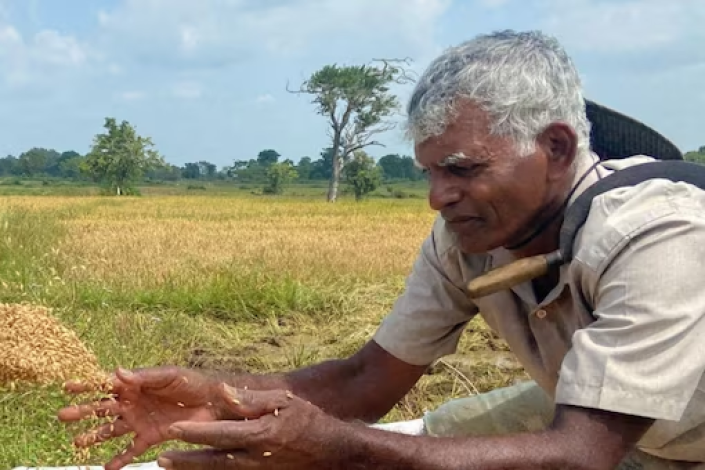
Cheruvayal Raman. Photo: Collected
Due to the switch to high-yielding varieties, indigenous rice varieties in Wayanad have been preserved by tribal farmers for decades. But they are now in danger of going extinct. Cheruvayal Raman, also known as the “Guardian of Native Paddy” and India’s “living paddy gene bank,” has alone preserved 54 ancient rice types from Kerala over the last 20 years.
Raman spent the majority of his life producing rice. He was born in Wayanad’s Adivasi community of Kurichiyas, a tribe with a long history of preserving and promoting indigenous varieties of rice. He opted to sow native seeds in a 1.5-acre portion of his field upon seeing native paddy being substituted by hybrid seeds in the village.
The Better India quoted Raman as saying, “I embarked on this path sometime during the early 2000s. Wayanad has always been a region known for its paddy cultivation, but our native paddy varieties were losing out to hybrid and genetically engineered seeds.”
Raman began planting paddy when he was only ten years old. However, he was left 40 acres of land by his uncle after he passed away in 1969. At that point, he thoroughly immersed himself in farming. Mannu Veliyan, Chembakam, Palveliyan, Kanali, Thondi, Channalthondi, Chettuveliyan and aromatic rice kinds like Gandhakashala, Jeerakasala, and Kayama are among the native rice varieties he keeps as stock in his 150-year-old mud house that also functions as a storage space. After all these years of cultivation of over 50 varieties of rice, Raman can now distinguish different types of rice just by looking at them.
Furthermore, the 72-year-old farmer doesn’t really sell his seeds, but rather presents them on one condition: the borrower must return the exact same quantity of seeds from their field after the first round of harvest. Raman has received numerous honours and accolades, including the Plant Genome Saviour Award and the P K Kalan Award from the Kerala government.
South First reported that Raman was willing to delegate the duty of conserving these indigenous rice to any rice research centre, agricultural university, nongovernmental organisation, or interested individuals.
Source:
Online/KSU
Comment Now